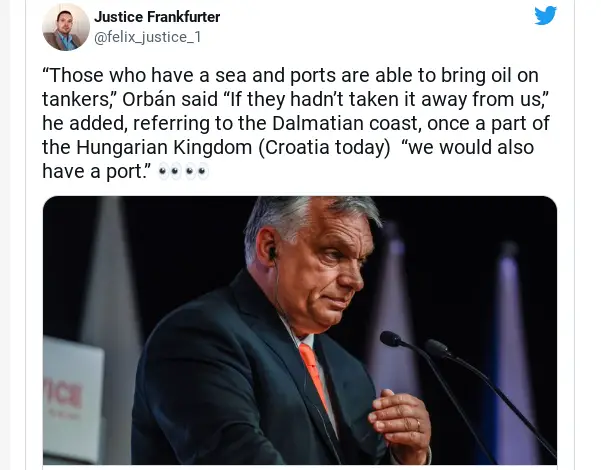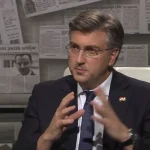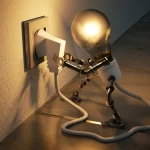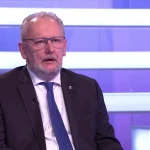As Morski writes, European Commission President Ursula von der Leyen met with Hungarian Prime Minister Viktor Orban yesterday over Hungary’s opposition to the European Union’s joint embargo on Russian oil. Von der Leyen said after the meeting that progress had been made and that some issues with Orban had been clarified.
”We’ve made some progress, but there’s still work to be done,” she added, which actually means that no concrete agreement has yet been reached with Hungary, the leader of which is very reluctant to firmly join the EU on its stance against Russia.
As one European diplomat explained to France Presse, Hungary would need a new pipeline to secure its oil supply, connecting it to the Republic of Croatia, which has access to the sea. Therefore, it seeks guarantees that Zagreb will engage in the construction of this infrastructure, as well as guarantees of European Union funding to facilitate it financially.
”Those who have sea and ports are able to bring oil on tankers. If they hadn’t taken it away from us (the sea), we would also have a port,” Viktor Orban said in an interview with the Hungarian state radio last Friday, as reported by Politico, which explains that Orban was referring to the Dalmatian coast.
Hungary is otherwise the biggest opponent of the joint EU embargo on Russian oil, and Viktor Orban has been seen as a thorn in the side of many diplomats and politicians across the EU for some time now.
To briefly recall, all 27 EU member states must be unanimous in order for sanctions to be imposed against Russia. The sanctions proposal cites certain exceptions, but both Slovakia and Hungary consider them to be insufficient. Hungary is the country that strongly opposes the European embargo on Russian oil and has already asked for a five-year postponement.
Hungarian Foreign Minister Peter Szijjarto said on Monday night that Hungary cannot accept the proposed package of European Union sanctions on Russia until its fears are resolved.
Earlier, Prime Minister Orban said that the European Commission’s proposal would have the effect of an “atomic bomb for Hungary”.
“It would destroy our stable energy supply,” he added.
For more, check out our politics section.











